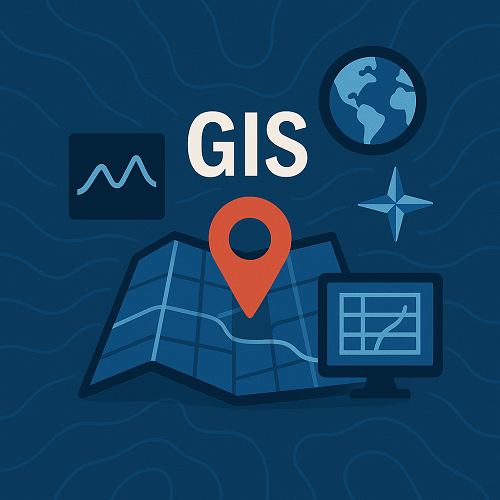GIS Technology Applications That Every Business Should Know About for Optimized Performance and Efficiency
In today’s ever-changing business environment, companies are looking for ways to stay ahead of their competitors. One of the ways they can do this is by leveraging the power of GIS (Geographic Information System) technology. GIS technology is a powerful tool that enables businesses to collect, manage, analyze and visualize spatial or geographical data, providing actionable insights for decision making. In this article, we will explore the various GIS technology applications that every business should know about for optimized performance and efficiency.
1. Location Intelligence:
Location intelligence is a critical component of any business strategy. It is the use of location-based data and tools to gain a competitive edge. With GIS technology, businesses can gather location data and gain insights that can be used to make informed decisions, such as where to open new stores or target customers. Location intelligence also helps businesses understand their customer’s behavior, demographics, and preferences, making it easier to tailor marketing strategies to specific customer groups.
2. Geomarketing:
Geomarketing is the use of GIS technology and data to create targeted and location-based marketing campaigns. This means businesses can analyze location data, demographic information, and purchasing behavior to target customers who are most likely to be interested in their products or services. With geomarketing, businesses can optimize their marketing strategies, improve their return on investment, and increase their customer base.
3. Asset and Facility Management:
Asset and Facility management is another area where GIS technology can be applied to optimize performance and efficiency. Businesses can use GIS technology to track and manage their assets and facilities (such as equipment, vehicles, and buildings) in real-time. This helps businesses optimize their operations, reduce maintenance costs, and improve customer satisfaction. The use of GIS technology for asset management is particularly useful for businesses with extensive operations such as logistics, utilities, and construction.
4. Supply Chain Management:
GIS technology can be used to create an optimized supply chain management system. By analyzing location data, businesses can identify the most efficient routes for transportation, reduce delivery times, and minimize transportation costs. The use of GIS technology for supply chain management is especially useful for businesses with extensive supply chain networks such as retailers, manufacturers, and wholesalers.
5. Risk Assessment and Management:
GIS technology can also be used to assess and manage risk in various industries such as insurance, finance, and environmental management. By analyzing location data, businesses can identify high-risk areas, create risk maps, and monitor their risk exposure. The use of GIS technology for risk assessment and management reduces the impact of natural disasters, environmental hazards, and other risks on businesses operations.
Conclusion:
GIS technology is a powerful tool that businesses can use to gain a competitive edge, optimize their performance, and increase their efficiency. By leveraging the power of GIS technology, businesses can innovate in ways that positively impact their bottom line and lead to improved ROI. Whether it’s location intelligence, geomarketing, asset and facility management, supply chain management or risk assessment and management, GIS technology has far-reaching implications.
FAQs:
1. What is GIS technology?
GIS technology is a system of hardware and software designed to capture, store, manipulate, analyze, and display geographically referenced data.
2. Why is GIS technology important for businesses?
GIS technology provides businesses with actionable insights that can be used to make informed decisions, optimize their operations, and improve their bottom line.
3. What industries can benefit from GIS technology?
GIS technology can benefit a wide range of industries, including retail, logistics, agriculture, insurance, finance, and environmental management, among others.
4. How does GIS technology help businesses optimize their performance?
GIS technology helps businesses optimize their performance by providing valuable insights into customer behavior, market trends, supply chain optimization, and risk management.
5. What are some of the key applications of GIS technology for businesses?
Some key applications of GIS technology for businesses include location intelligence, geomarketing, asset and facility management, supply chain management, and risk assessment and management.
